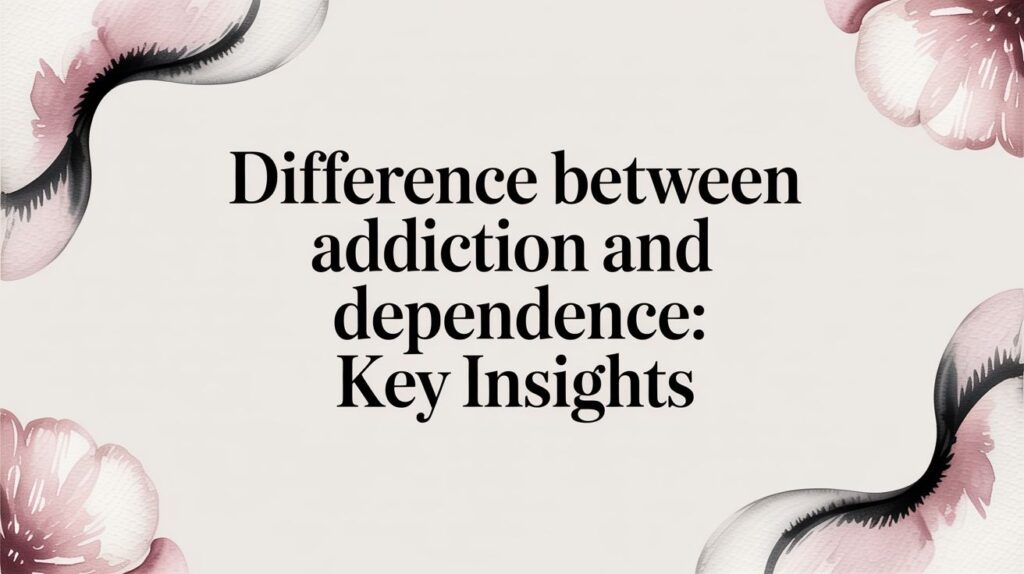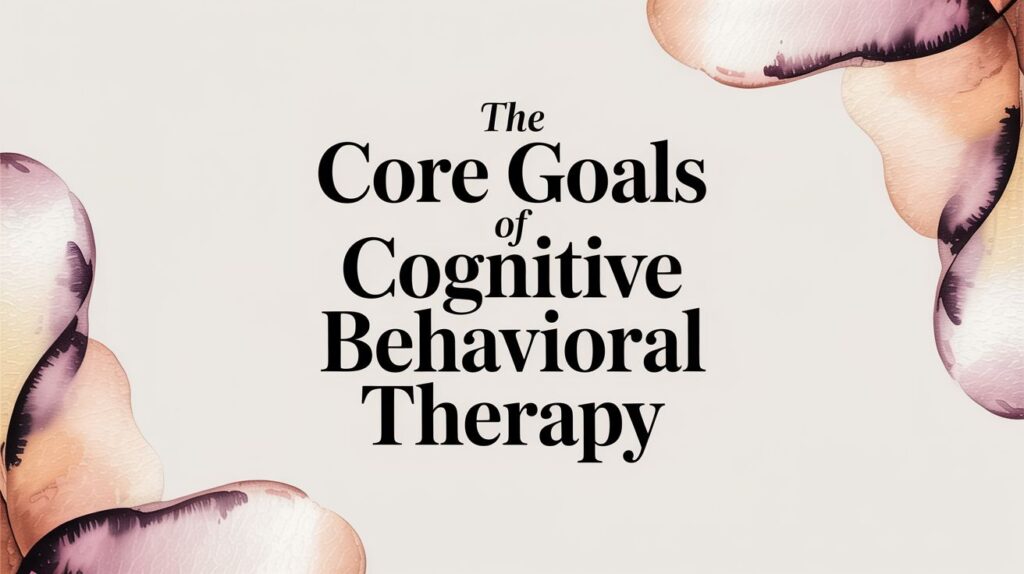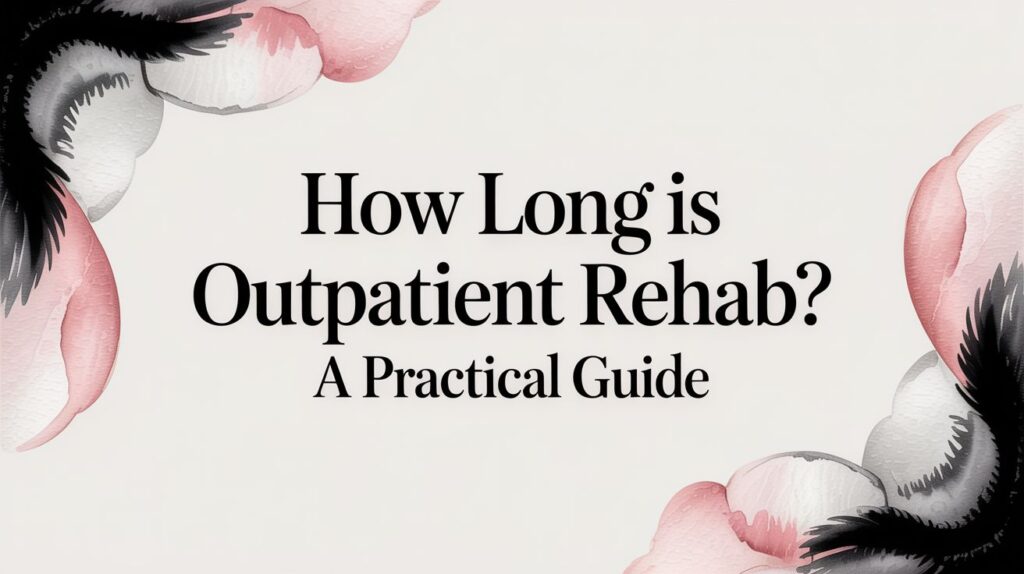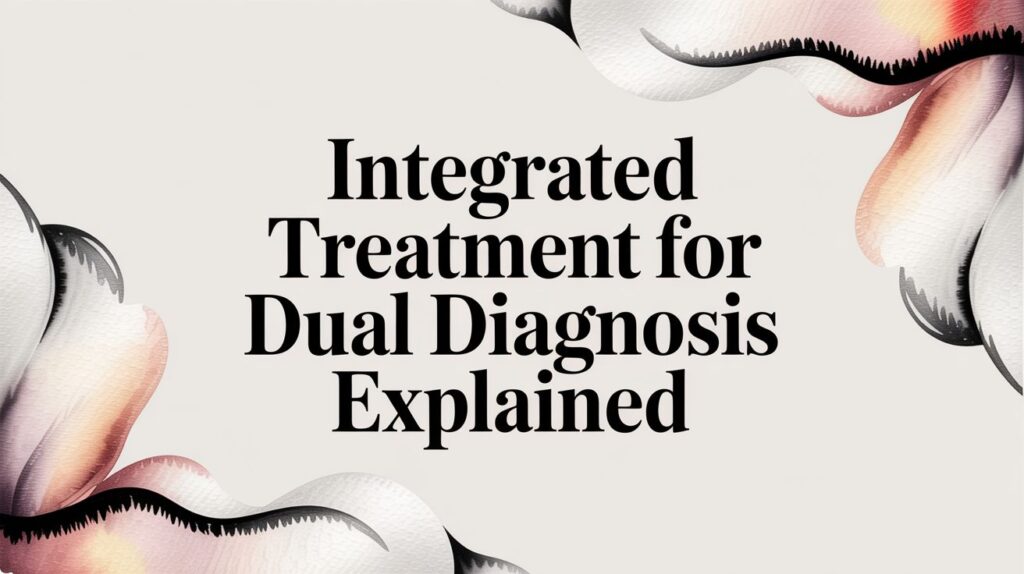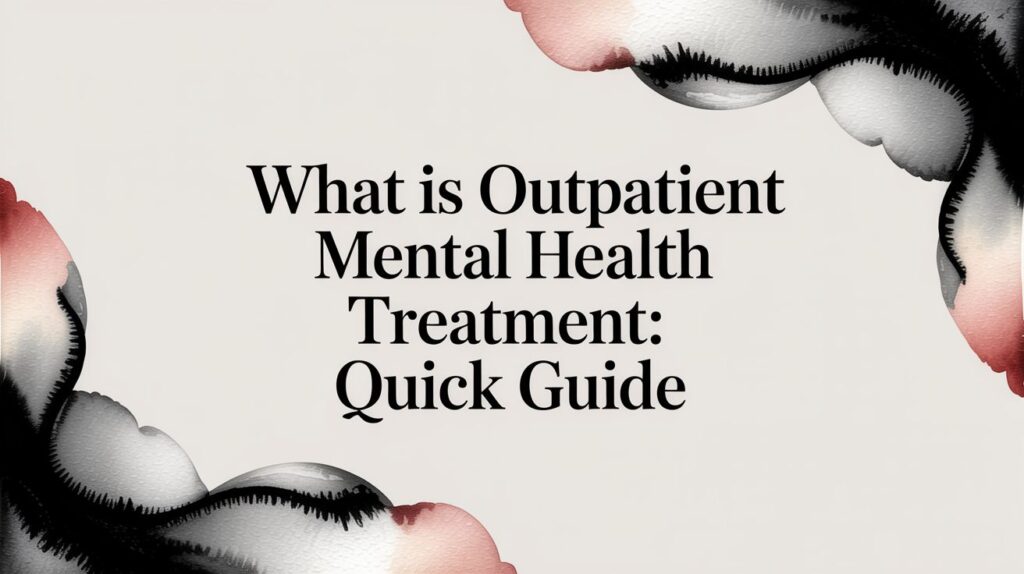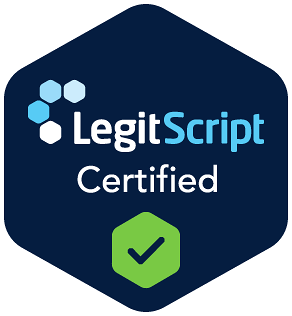Group therapy is a cornerstone of lasting addiction recovery, providing a space for shared experience, mutual support, and profound healing. However, the effectiveness of these sessions hinges directly on the topics discussed. The right prompts can unlock vulnerability, foster connection, and equip participants with the tools they need to navigate the complexities of sobriety. This guide moves beyond generic prompts, offering ten powerful and structured group therapy topics for addiction, each designed to address a critical aspect of the recovery journey.
We will explore the 'what,' 'why,' and 'how' of each topic, providing facilitators with actionable strategies and unique angles to create truly impactful sessions. Structuring these discussions effectively is key to ensuring every member feels heard and can contribute meaningfully. For insights into structuring group dynamics and fostering collaborative growth, you might find valuable information in resources on strategies for group mastermind success. This approach helps create a cohesive and supportive environment where participants can thrive.
From managing triggers and rebuilding damaged relationships to developing emotional regulation skills and finding a new sense of purpose, these topics lay the groundwork for real growth. This list is designed to be a practical resource for creating conversations that lead to sustainable freedom from addiction.
1. Relapse Prevention and Trigger Management
A cornerstone of sustainable recovery, this topic directly addresses the high-stakes reality of staying sober after initial treatment. It moves beyond simply stopping substance use to building a proactive defense against the internal and external cues that can lead back to old behaviors. This is one of the most vital group therapy topics for addiction because it empowers individuals to become experts in their own recovery journey.
Session Objectives and Approach
The core goal is to help participants identify their unique triggers, such as specific emotions, social situations, or even times of day. The group setting provides a powerful space for members to share experiences, realizing they are not alone in their struggles. Facilitators guide the group in developing a personalized, written relapse prevention plan.
This plan typically includes:
- A list of personal high-risk situations and early warning signs.
- Specific, healthy coping mechanisms to deploy when a trigger is activated.
- A network of supportive contacts to call during moments of vulnerability.
- Steps to take if a lapse occurs to prevent it from becoming a full-blown relapse.
Facilitator Tips for Implementation
To make these sessions effective, facilitators should ground the discussion in real-world application. Using role-playing exercises allows members to practice saying "no" in a high-pressure social setting or using a grounding technique during a moment of intense craving.
Key Insight: A relapse prevention plan is not a static document. Encourage group members to review and update their plans regularly, especially after navigating a new or challenging situation successfully. This turns the plan into a living guide for their recovery.
This approach, popularized by addiction specialists like Terence Gorski, is crucial for anyone in recovery, providing the practical tools needed to maintain long-term sobriety.
2. Family Dynamics and Relationship Repair
Addiction rarely exists in a vacuum; it profoundly impacts the entire family unit, often causing deep rifts in trust and communication. This topic explores how substance use has altered family roles and relationships, providing a structured path toward healing and reconciliation. Addressing these dynamics is one of the most crucial group therapy topics for addiction because healthy relationships are a powerful buffer against relapse.
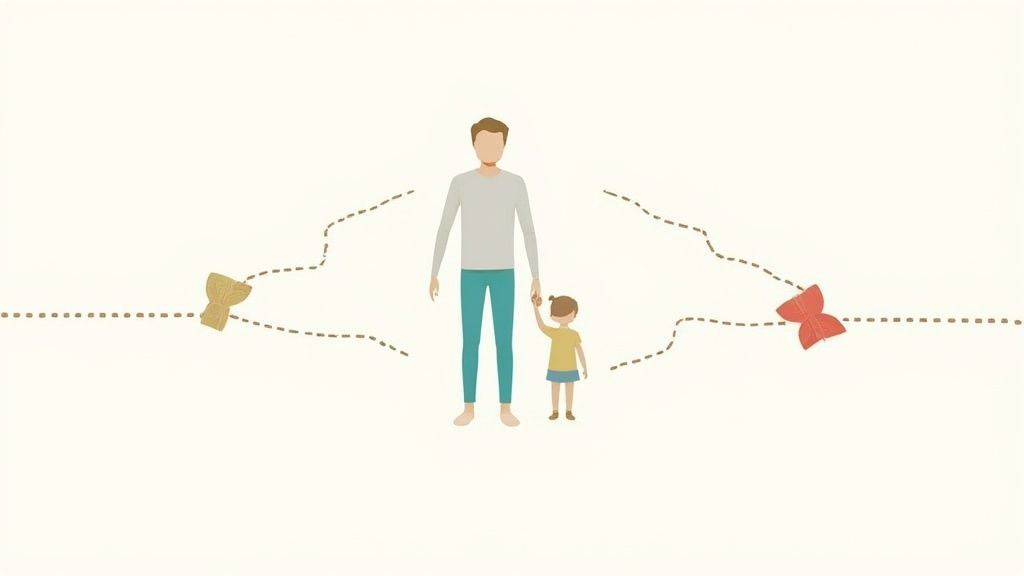
Session Objectives and Approach
The primary goal is to help participants understand the concepts of enabling, codependency, and other dysfunctional patterns that develop around addiction. The group provides a safe environment for members to share their family experiences, identify unhealthy communication styles, and begin the work of rebuilding broken bonds. Facilitators guide conversations on setting healthy boundaries and re-establishing trust.
This process often involves:
- Mapping out family roles and how addiction has distorted them.
- Learning and practicing healthy communication skills, such as using "I" statements.
- Developing strategies for making amends and forgiving others.
- Creating a plan for navigating family events and interactions while sober.
Facilitator Tips for Implementation
To foster a safe and productive environment, facilitators should establish clear ground rules for respectful communication and confidentiality. Role-playing difficult conversations, such as setting a boundary with a parent or apologizing to a spouse, can be incredibly effective. It allows members to practice these high-stakes interactions in a supportive setting before trying them in real life.
Key Insight: Progress in family repair is often slow and non-linear. Encourage members to focus on their own actions and reactions rather than trying to control the responses of their family members. True change begins with personal accountability.
This approach, championed by models like Multidimensional Family Therapy (MDFT) and support groups like Al-Anon, is essential for creating a supportive home environment conducive to long-term recovery.
3. Cognitive Behavioral Therapy (CBT) and Thought Patterns
This topic introduces one of the most evidence-based therapeutic models for addiction treatment, focusing on the powerful link between thoughts, feelings, and actions. It operates on the principle that addictive behaviors are often driven by ingrained, automatic negative thought patterns. By learning to identify and challenge these cognitive distortions, individuals can effectively interrupt the cycle of addiction, making this a foundational element in any list of group therapy topics for addiction.
Session Objectives and Approach
The primary objective is to equip group members with the skills to recognize and reframe their own distorted thinking. The facilitator introduces concepts like "all-or-nothing thinking," "catastrophizing," and "emotional reasoning," which are common in substance use disorders. In the group, members can share examples of their own negative self-talk, receiving feedback and alternative perspectives in a supportive environment.
This structured approach involves:
- Identifying the specific thought that precedes a craving or a decision to use.
- Analyzing the evidence for and against that thought's validity.
- Developing a more balanced, rational, and adaptive replacement thought.
- Practicing this cognitive restructuring process until it becomes a new habit.
Facilitator Tips for Implementation
To bring CBT to life, facilitators should rely on interactive tools. Worksheets like thought records are invaluable for helping members track and deconstruct their thinking patterns outside of the session. In-group exercises where members work together to challenge a specific negative thought can build both skills and peer solidarity. You can learn more about the fundamentals of this therapy on alturarecovery.com.
Key Insight: A significant breakthrough occurs when a member connects a specific distorted thought directly to a past relapse. Highlighting this connection reinforces the real-world power of CBT and motivates the entire group to engage more deeply with the process.
This approach, pioneered by Aaron Beck, gives individuals practical, lifelong tools to manage not just cravings but also the co-occurring anxiety and depression that often fuel addiction.
4. Emotional Regulation and Coping Skills
For many, substance use becomes a way to numb or escape overwhelming emotions. This topic addresses the root cause by teaching participants to identify, understand, and manage difficult feelings without turning to substances. By focusing on emotional regulation, this is one of the most transformative group therapy topics for addiction as it equips individuals with the internal resources needed to handle life’s stressors constructively.

Session Objectives and Approach
The primary goal is to build a toolkit of healthy coping mechanisms. Sessions often draw from Dialectical Behavior Therapy (DBT), teaching skills for mindfulness, distress tolerance, and interpersonal effectiveness. The group environment allows members to share emotional challenges and receive validation while learning practical strategies.
The approach involves:
- Identifying personal emotional triggers and habitual reactions.
- Learning and practicing specific distress tolerance skills, such as TIPP (Temperature, Intense Exercise, Paced Breathing, Paired Muscle Relaxation).
- Developing mindfulness practices to observe emotions without judgment.
- Building a personalized "coping toolbox" of go-to strategies for various situations.
Facilitator Tips for Implementation
To make these skills tangible, facilitators should dedicate significant time to in-session practice. Use simple acronyms like RAIN (Recognize, Allow, Investigate, Nurture) to make mindfulness techniques easy to recall. It's crucial to validate members' emotional experiences first before gently encouraging the use of a new skill.
Key Insight: Emotional regulation isn't about eliminating difficult feelings; it's about changing one's relationship to them. Encourage members to see emotions as temporary states they can navigate with skills, rather than as emergencies that require escape.
This framework, pioneered by figures like Marsha Linehan, helps individuals build emotional resilience, a critical component for preventing relapse. You can find more information about developing effective coping skills for substance abuse to further support recovery.
5. Motivation Enhancement and Change Readiness
This topic addresses the core challenge of ambivalence, a common hurdle in early recovery where a person simultaneously wants and resists change. Instead of confronting resistance, this approach focuses on building intrinsic motivation, guiding individuals to discover their own powerful reasons for pursuing sobriety. Exploring this is one of the most foundational group therapy topics for addiction, as genuine, self-driven motivation is a far more sustainable force than external pressure.
Session Objectives and Approach
The primary goal is to help participants resolve their conflicting feelings about substance use and strengthen their commitment to change. Using techniques from Motivational Interviewing (MI), the facilitator creates a collaborative, non-judgmental environment where members can explore their values and goals. The group dynamic helps normalize ambivalence while providing encouragement and shared insights.
Key elements of this approach include:
- Exploring the pros and cons of both substance use and sobriety from the client's perspective.
- Identifying discrepancies between a member's current behaviors and their long-term goals or values.
- Eliciting and reinforcing "change talk," which are statements that favor moving toward recovery.
- Developing a collaborative plan that respects the individual's autonomy and readiness.
Facilitator Tips for Implementation
Success in these sessions hinges on a non-confrontational, empathetic style. Facilitators should use open-ended questions to encourage deep reflection, such as "What would your life look like in five years if you made this change?" Using a "readiness ruler" (e.g., "On a scale of 1 to 10, how ready are you to change?") can be a simple yet powerful tool to open up discussion about what it would take to increase that number. You can learn more about the principles of Motivational Interviewing and its application in therapy.
Key Insight: The goal is not to persuade, but to guide. When group members arrive at their own conclusions about the need for change, their commitment is stronger and more resilient. The facilitator's role is to be a supportive partner in that process of self-discovery.
Pioneered by William Miller and Stephen Rollnick, this empathetic approach is highly effective for individuals who are initially resistant or uncertain about treatment, making it a critical component of a comprehensive recovery program.
6. Peer Support and Community Connection
Isolation is a powerful driver of addiction, and this topic directly counters it by leveraging the immense power of shared experience. It focuses on the principle that those who have navigated the challenges of recovery are uniquely equipped to support others on the same path. This is a fundamental component of many successful recovery models and one of the most effective group therapy topics for addiction because it builds a durable, sober social network.

Session Objectives and Approach
The primary goal is to foster a sense of belonging and mutual accountability. Sessions are designed to break down the walls of shame and loneliness, creating a safe space where members can offer and receive genuine, non-judgmental support. The group becomes a microcosm of a healthy community.
This approach often involves:
- Establishing clear group norms for confidentiality and respectful communication.
- Encouraging members to share their personal recovery stories and current struggles.
- Celebrating recovery milestones, such as sobriety anniversaries, as a group.
- Facilitating discussions on building healthy relationships outside of the therapy setting.
Facilitator Tips for Implementation
A facilitator's role is to guide, not dominate, the conversation, allowing the peer dynamic to flourish. Establish a clear structure, such as rotating speaking opportunities, to ensure everyone has a chance to contribute. It's also vital to model healthy conflict resolution if disagreements arise, turning potential friction into a learning opportunity for the entire group.
Key Insight: True peer support extends beyond the therapy room. Encourage members to exchange contact information (with consent) and create informal support networks, transforming the group from a weekly meeting into a daily lifeline.
This model, pioneered by the founders of Alcoholics Anonymous and now central to programs like SMART Recovery and SAMHSA's peer initiatives, emphasizes that connection is the antidote to the isolation of addiction.
7. Dual Diagnosis: Mental Health and Addiction Integration
Addressing the reality that substance use rarely occurs in a vacuum, this topic is critical for clients with co-occurring mental health conditions like depression, anxiety, or PTSD. It focuses on the intricate link between mental health symptoms and substance use, treating them not as separate issues but as interconnected challenges. This integrated approach is one of the most effective group therapy topics for addiction, as it prevents clients from falling through the cracks between mental health and addiction services.
Session Objectives and Approach
The primary objective is to help members understand how their mental health symptoms can trigger substance use and vice versa. Group sessions provide psychoeducation on the nature of dual diagnosis, destigmatizing both conditions. Facilitators guide participants in developing strategies that address both their mental health and their addiction simultaneously.
An integrated plan often includes:
- Education on how specific substances affect mood and mental health medications.
- Healthy coping skills for managing psychiatric symptoms without self-medicating.
- Strategies for medication adherence and communication with prescribers.
- Exploration of how trauma or other mental health issues underlie addictive behaviors.
Facilitator Tips for Implementation
To properly manage these complex groups, facilitators must foster a safe environment where members can openly discuss their mental health without judgment. It is crucial to use validated screening tools to identify co-occurring issues and collaborate closely with psychiatrists or other mental health professionals involved in a client's care. Integrating trauma-informed care principles is essential, ensuring discussions are handled with sensitivity.
Key Insight: Treatment for a dual diagnosis is not sequential; it must be simultaneous. Encourage members to view their recovery as a single, unified path where progress in managing mental health directly supports sobriety, and vice versa.
This approach, championed by organizations like SAMHSA and NIDA, is fundamental for a significant portion of the recovery population, offering a holistic path to wellness. You can learn more about how outpatient programs can effectively address these overlapping needs. Learn more about integrated dual diagnosis treatment.
8. Life Skills and Recovery Maintenance
Sobriety is the foundation, but a stable, fulfilling life is the structure built upon it. This topic addresses the practical realities of re-engaging with society, focusing on the tangible skills needed to navigate daily responsibilities without the crutch of substance use. It is one of the most grounding group therapy topics for addiction because it bridges the gap between the therapeutic environment and the demands of the real world.
Session Objectives and Approach
The primary objective is to equip participants with the competencies needed for independent living and long-term stability, which directly reduces stressors that can trigger a relapse. The group works together to tackle common challenges like finding employment, managing finances, and securing stable housing. Facilitators guide practical workshops and goal-setting exercises.
A life skills curriculum often includes:
- Resume building, job application practice, and interview skills.
- Basic budgeting, debt management, and financial planning.
- Navigating housing applications and understanding tenant rights.
- Developing healthy routines for nutrition, exercise, and sleep hygiene.
Facilitator Tips for Implementation
To maximize impact, facilitators should make these sessions as hands-on as possible. Connect with local community action agencies or employment services to bring in guest speakers who can provide expert advice and resources. Use real job applications and conduct mock interviews to build members’ confidence in a supportive setting.
Key Insight: Focus on building self-efficacy before tackling major tasks. Celebrate small wins, like creating a budget or drafting a resume, as significant milestones. This momentum is crucial for empowering individuals to take on larger challenges like a job search or finding new housing.
This approach, championed by organizations like SAMHSA through their Recovery Support Services, is vital for building a life where recovery can truly thrive.
9. Spirituality and Purpose in Recovery
This topic addresses the existential void that often accompanies addiction, helping individuals connect with a sense of meaning beyond substance use. It explores spirituality in a broad, inclusive sense, focusing on values, purpose, and a connection to something larger than oneself, which is not necessarily religious. This is a powerful addition to group therapy topics for addiction because it shifts the focus from merely avoiding a negative to actively building a positive, fulfilling life.
Session Objectives and Approach
The primary goal is to help participants define their own sense of purpose and spirituality, which acts as a powerful motivator for long-term recovery. Sessions are designed to be exploratory, allowing members to discuss their beliefs, values, and what matters most to them in a non-judgmental space. For many, addiction recovery is also a journey of self-discovery, where understanding what gives life meaning becomes paramount to sustained sobriety.
This exploration often involves:
- Identifying core personal values and how to live in alignment with them.
- Discussing different spiritual paths, from traditional 12-Step concepts to secular approaches like Recovery Dharma.
- Engaging in mindfulness, meditation, or gratitude exercises.
- Creating a personal mission statement for their recovery and life.
Facilitator Tips for Implementation
To foster a safe and inclusive environment, facilitators must define spirituality broadly, emphasizing that it can include connection to nature, community, art, or a personal code of ethics. Respecting diverse belief systems is critical. Offer a variety of practices and avoid imposing any single viewpoint. Role-playing can help members articulate their newfound values in challenging family or social situations.
Key Insight: Purpose is a potent antidote to despair. When group members connect their daily choices to a larger purpose, the motivation for sobriety becomes intrinsic and resilient, rather than just a response to external pressures.
This approach, seen in programs from 12-Step fellowships to modern contemplative groups like Refuge Recovery, provides a durable foundation for a life that is not just sober, but also deeply meaningful.
10. Healthy Relationships and Sexual Health
Addiction often damages the most intimate parts of a person's life, including their romantic partnerships and sexual well-being. This topic creates a confidential space to address the intersection of substance use, intimacy, and health. It focuses on rebuilding trust, establishing healthy boundaries, and understanding the nuances of consent and communication, making it one of the most profoundly healing group therapy topics for addiction.
Session Objectives and Approach
The primary goal is to help participants understand how addiction has impacted their relationships and to equip them with the skills to build healthier connections in recovery. Facilitators guide conversations around intimacy, attachment styles, and the challenges of rebuilding trust that has been broken.
The therapeutic process typically includes:
- Exploring patterns of codependency and unhealthy relationship dynamics.
- Educating on sexual health, safe practices, and the effects of substances on libido and function.
- Defining and practicing setting firm, respectful personal boundaries.
- Developing communication skills for expressing needs and navigating conflict without resorting to old behaviors.
Facilitator Tips for Implementation
Creating a safe, non-judgmental environment is paramount for this sensitive topic. Facilitators should explicitly establish group norms for respect and confidentiality. Using gender-specific or LGBTQ+ affirming groups can help members feel more comfortable discussing personal experiences.
Key Insight: Healthy sexuality in recovery is not just about abstinence or risk reduction; it's about rediscovering intimacy and connection that is authentic and affirming. Frame the conversation around holistic well-being rather than solely focusing on a problem to be managed.
This approach, informed by resources from organizations like SAMHSA and the American Sexual Health Association, helps individuals heal relational wounds and build a foundation for fulfilling partnerships in sobriety.
Addiction Group Therapy: 10-Topic Comparison
| Program | Implementation Complexity 🔄 | Resource Requirements ⚡ | Expected Outcomes ⭐📊 | Ideal Use Cases 💡 | Key Advantages ⭐ |
|---|---|---|---|---|---|
| Relapse Prevention and Trigger Management | Moderate 🔄 — structured sessions, role‑play | Low–Moderate ⚡ — facilitator, worksheets | Improved relapse resistance; actionable prevention plans ⭐📊 | High‑risk clients; outpatient groups | Concrete coping tools; pattern recognition |
| Family Dynamics and Relationship Repair | High 🔄 — multi‑member coordination, mediation skills | Moderate–High ⚡ — multiple participants, skilled facilitator | Stronger family support; reduced enabling behaviors ⭐📊 | Families impacted by addiction; reconciliation work | Strengthens support system; addresses family patterns |
| Cognitive Behavioral Therapy (CBT) and Thought Patterns | Moderate 🔄 — structured curriculum, homework | Low–Moderate ⚡ — trained CBT therapist, materials | Measurable cognitive change; reduced maladaptive thinking ⭐📊 | Cognitive skill‑building; dual diagnosis | Evidence‑based; skills transfer to other problems |
| Emotional Regulation and Coping Skills | Moderate 🔄 — practice‑intensive, DBT elements | Moderate ⚡ — facilitator, practice time | Better emotion control; fewer impulsive uses ⭐📊 | Emotion‑driven substance use; DBT groups | Teaches durable distress‑tolerance and mindfulness |
| Motivation Enhancement and Change Readiness | Low–Moderate 🔄 — brief MI sessions, skilled interviewing | Low ⚡ — short sessions, trained facilitator | Increased readiness and treatment engagement ⭐📊 | Ambivalent clients; brief interventions | Builds intrinsic motivation; nonconfrontational |
| Peer Support and Community Connection | Low 🔄 — peer‑led, flexible structure | Low ⚡ — volunteers, meeting space | Reduced isolation; ongoing mutual support ⭐📊 | Long‑term recovery; aftercare and community building | Cost‑effective; relatable role models and accountability |
| Dual Diagnosis: Mental Health and Addiction Integration | High 🔄 — integrated care planning, specialist input | High ⚡ — psychiatrists, meds, coordinated teams | Improved overall outcomes; lower relapse with co‑occurring care ⭐📊 | Complex cases with mental health comorbidity | Comprehensive approach; addresses root causes |
| Life Skills and Recovery Maintenance | Low–Moderate 🔄 — practical workshops, role plays | Moderate ⚡ — community partners, hands‑on resources | Greater stability; employment/housing gains ⭐📊 | Transitioning to independent living; relapse prevention | Addresses practical barriers; boosts self‑efficacy |
| Spirituality and Purpose in Recovery | Low–Moderate 🔄 — inclusive facilitation, varied practices | Low ⚡ — facilitator, optional practice resources | Enhanced meaning and sustained motivation ⭐📊 | Values‑seeking clients; long‑term purpose work | Supports existential needs; broad applicability if inclusive |
| Healthy Relationships and Sexual Health | Moderate–High 🔄 — sensitive topics, trauma‑informed approach | Moderate ⚡ — trained facilitators, screening protocols | Improved intimacy, boundaries, reduced shame ⭐📊 | Couples, sexual health concerns, trauma survivors | Builds safer relationships; addresses sexual health risks |
Integrating Group Topics for Holistic Recovery
The journey from active addiction to sustained recovery is a profound transformation, one that requires more than just abstinence. As we've explored, the path to healing is multifaceted, touching every corner of an individual's life. The strength of group therapy lies in its ability to address this complexity through a rich tapestry of targeted discussions. The group therapy topics for addiction outlined in this article, from managing triggers and repairing relationships to developing emotional regulation and building new life skills, are not isolated modules. They are interconnected threads that, when woven together, create a robust safety net for long-term sobriety.
A truly effective recovery plan recognizes that a person is not defined by their addiction. It acknowledges the interplay between mental health, family history, cognitive patterns, and daily life stressors. By engaging in diverse topics like dual diagnosis, healthy relationship building, and finding a renewed sense of purpose, individuals move beyond simply not using and step into the realm of thriving. This integrated approach ensures that recovery is not a fragile state to be protected, but a resilient and dynamic way of living.
Key Takeaways for a Comprehensive Recovery
The power of these topics is maximized when they are applied cohesively. Here are the most important takeaways to remember:
- Skills Over Willpower: Recovery is built on a foundation of practical, learned skills, not sheer willpower. Topics like CBT, trigger management, and emotional regulation provide the tangible tools needed to navigate challenges successfully.
- Connection is the Antidote: Addiction thrives in isolation. Group therapy topics focused on peer support, family dynamics, and healthy relationships directly counteract this, fostering the community and connection essential for healing.
- Holistic Healing is Essential: Addressing only the substance use is like treating a symptom without addressing the cause. Integrating discussions on mental health, spirituality, and life skills ensures that the whole person is healing, leading to more sustainable and fulfilling outcomes.
- Recovery is an Active Process: Sobriety isn't a destination; it's a continuous journey of growth. Regularly engaging with these topics in a group setting reinforces positive habits and provides ongoing support for the evolving challenges of life in recovery.
Mastering these concepts allows you to build a life where sobriety is a natural outcome of overall well-being. It empowers you to not only face triggers but to understand their roots, not just to avoid conflict but to build genuinely supportive relationships, and not just to get by but to create a life filled with purpose and joy. The journey is challenging, but by embracing this comprehensive approach, you are equipping yourself with everything you need to build a lasting, meaningful recovery. The right combination of group therapy topics for addiction provides the roadmap, and your commitment to the process fuels the journey toward a brighter, healthier future.
If you are ready to experience a holistic approach to healing, the team at Altura Recovery is here to guide you. Our outpatient programs in Houston are built around evidence-based group therapy topics for addiction, tailored to help you achieve Real Healing, Real Growth, and Real Freedom. Contact Altura Recovery today to learn how our flexible and comprehensive treatment can fit into your life and support your journey.


